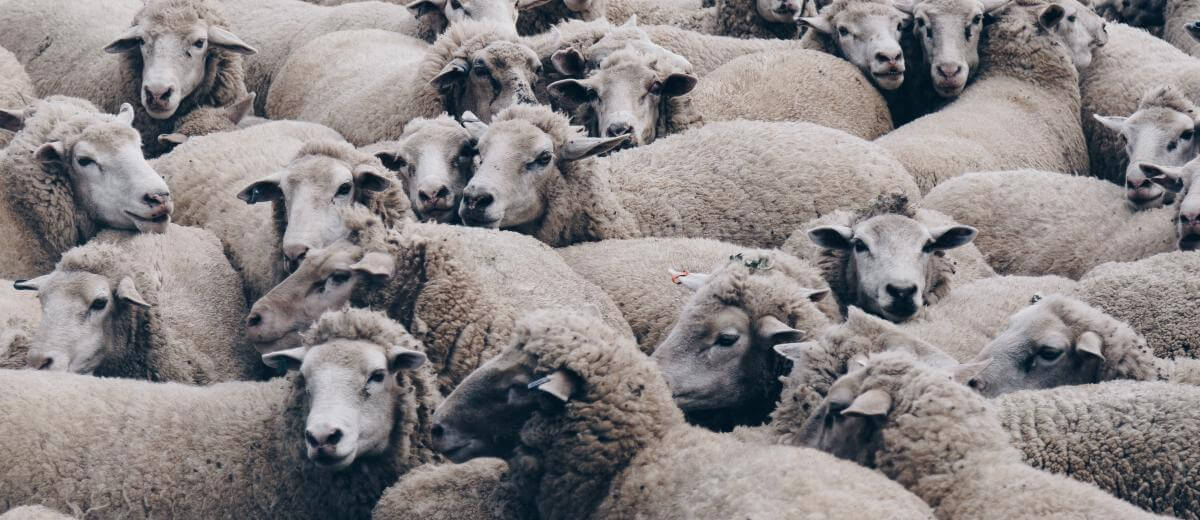
A scanning technology commonly used by the medical industry is being adopted by meat processors to improve on traditional human-based grading of meat. This paves the way for livestock producers to make more informed decisions, increasing productivity and enhancing profitability.
The challenge of assessing lamb meat quality
Lamb is a premium product for Australian consumers, but to maintain this position, it is crucial that the industry is able to ensure a consistently high eating quality. Predicting eating quality through measurements taken during processing, however, is a challenge for the industry.
Historically, lamb carcase maturity has been based on estimates that assessed teeth development and wear. Now a technology commonly used to measure bone density and body fat composition in the medical industry is being rolled out across the meat-processing sector to improve information about eating quality, yield measurement, and ultimately, developing a better product for consumers.

Photo: Christopher Burns / Unsplash
DEXA technology creating value across the supply chain
DEXA (Dual Energy X-Ray Absorptiometry) is an objective measurement tool that can provide information on the lean meat, bone and fat composition of each carcase, which can be added to the existing eating quality carcase feedback provided by graders. This type of objective measurement technology is valuable because it can be used to better measure attributes to predict not only eating quality but also disease or contamination. Importantly, data can be fed back across the supply chain enabling data-based decision-making on the farm.
Lean meat yield, in the case of beef, is a percentage measure of the amount of meat recovered from a carcase. It is a key driver of profitability for those producing the beef, the processors, and also retailers. Processors can use DEXA technology to provide producers with a more accurate picture of actual lean meat yield in each carcase and therefore more accurate payments based on yield.
Murdoch University, in a trial of beef carcases, showed DEXA was 88% accurate in measuring lean meat yield within a range of 3%.
A report from Ernst and Young, the Independent Review of the proposed installation of DEXA in AUS-MEAT registered processing facilities, suggested the accuracy of human-based predictions of lean meat yield of beef carcases is between 30 – 40% accurate.
Recently, researchers from Murdoch University also ran a trial to determine how accurately the technology could predict the eating quality of Australian lamb. The results they obtained were positive suggesting there is huge potential for commercial DEXA systems within processing plants to predict aspects of eating quality and input into a lamb eating quality prediction model.

DEXA can provide information on eating quality parameters such as lean meat, bone and fat composition of carcases. Source: www.scottautomation.com/products/dexa/
What does this mean for lamb producers?
There are benefits across the supply chain, from paddock to plate.
From a producer perspective, the ability to have access to information that fully and objectively measures carcase traits enables them to better understand the value drivers of their livestock. In turn, they can adjust their farm and animal management to optimise returns based on accurate carcase feedback. They can target their breeding program for improved genetic gain and use more effective price signals to optimise their livestock offerings.
Furthermore, accurately measuring meat yield in meat processing facilities has the potential to increase revenue for producers so they are getting more ‘bang for buck’ for proven yield and other meat quality characteristics.
By targeting eating quality, Australian livestock industries can ensure they maintain a reputation for premium quality for buyers and consumers.
A worthy end goal is to enable the entire red meat value chain to make more informed business decisions that will improve on-farm and processing efficiency and deliver a product that is preferred by consumers.
With these benefits being proven as a good investment, DEXA technology is now being rolled out across Australia. Meat & Livestock Australia (MLA) recently supported the installation of new lamb DEXA systems into existing processing facilities in Western Australia, New South Wales and Victoria.
Check out agtech solutions for meat processing and value add in the AgTech Finder Directory.



